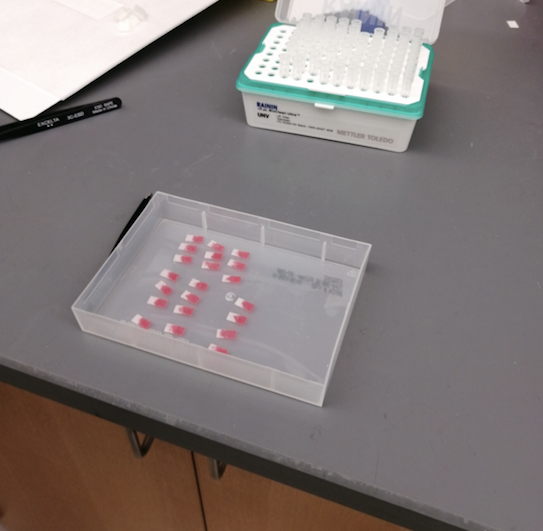Being at Rice as a graduate student has been a surreal experience and I feel caught somewhere between a senior and a real adult. Many things have stayed the same - such as my friends, track, and the BRC - but many things like my classes and interests have changed drastically. I was always told that graduate school is much better than undergraduate because you get to choose the things that interest you and I can confirm this is %100 true. Some of my classes I didn’t get to pick, like my Medical Technology Design class and seminar, but I still enjoy them much more than my undergraduate classes because I chose this master program in order to learn more about designing medical devices. On the other hand, I had infinite possibilities when it came to picking my two electives for this semester, and so I was able to choose the most interesting classes to me.
The biggest difference from my undergraduate experience, however, is my interactions with the Texas Medical Center through this program. TMC has always been a stone’s throw away from Rice, but even as bioengineering major I did not have many chances to collaborate with anyone there. Now I go there multiple times a week to meet with doctors or to observe procedures. The past 3 weeks I have spent observing thoracoscopic wedge resection surgeries and I have found a plethora of needs associated with the procedure. The next few weeks will be spent screening these needs in order to come up with one overall goal for a new medical device that will facilitate the procedure. This device will also be designed with the support of Johnson & Johnson’s Center for Device Innovation at TMCx.
On the global side of things, my teammate and I have found a need that we are focusing on developing a solution for. The need involves reducing occupational hazards of radiopharmacists in order to minimize ailments caused by radiation exposure and physical stress during the fractionation of radiotracers. We were able to talk with radiopharmacists from Hospital de Amor in Brazil to confirm our user needs and we obtained video of the radiotracer fractionation process. The next steps for this project will involve making contact at local nuclear medicine departments and also brainstorming solutions to this problem. While things have been very fast-paced I predict things will pick up even more once my teams move out of the 1st phase of the design process. I am excited to use my engineering skills and begin prototyping devices for both of these projects. I am also excited to hang out more with my new GMI friends. The time we spent over the summer made us close and we have had weekly outings together like going to the Rice vs. UT football game or eating Peking duck in Chinatown.

